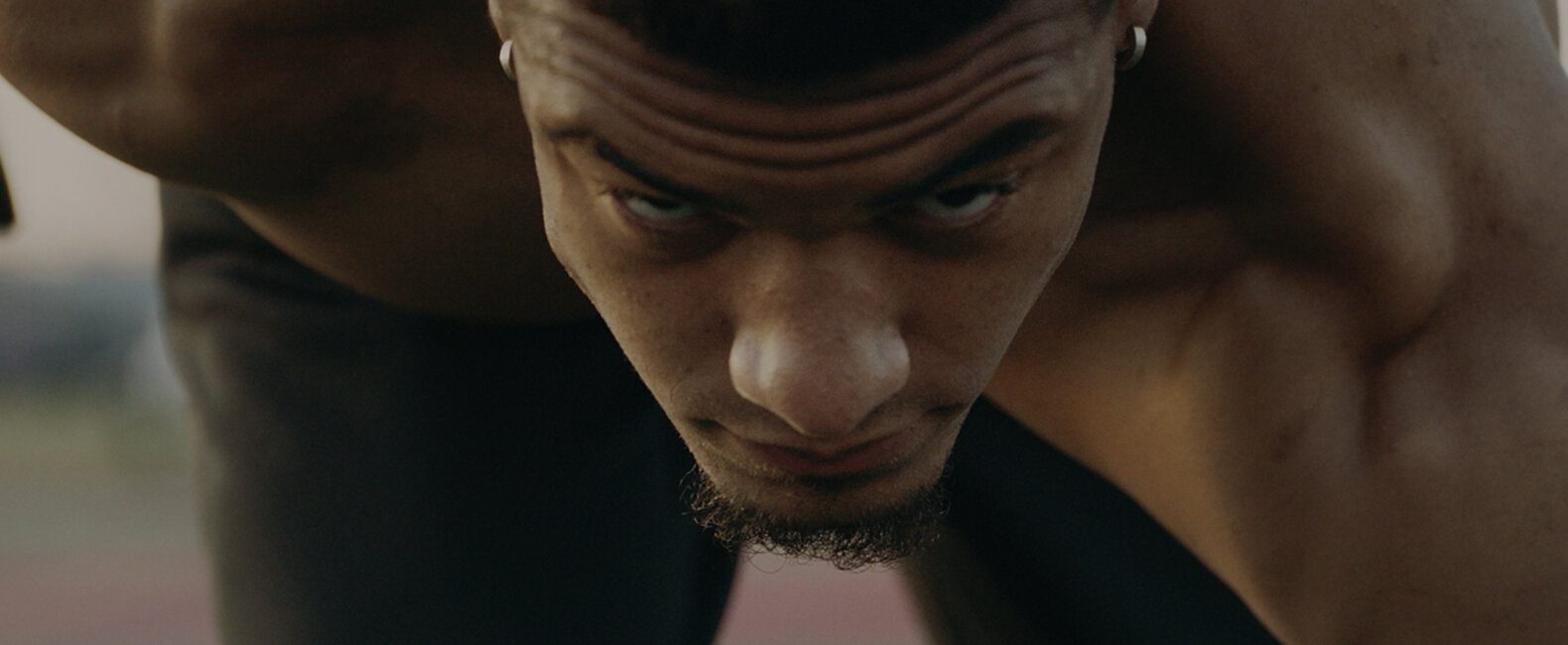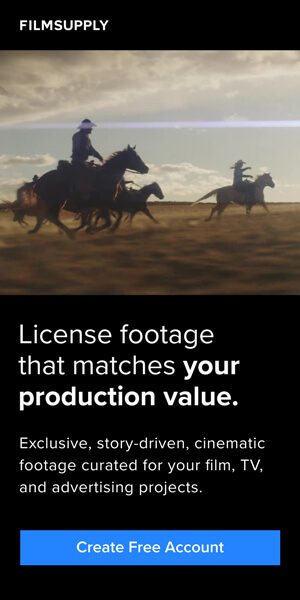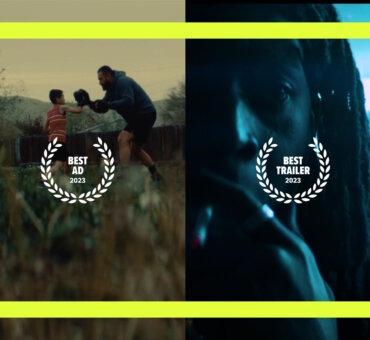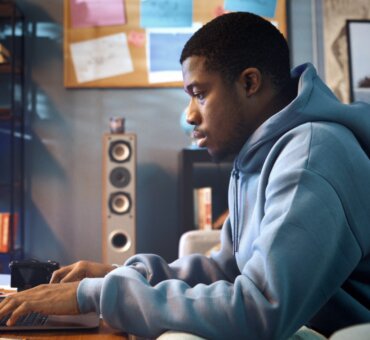In episode 8 of ESPN’s Draft Academy, Evolve captured one of the most compelling moments in recent sports history — Shaquem Griffin, a man with one hand, getting drafted into the NFL. They weren’t the only camera in the room, but they were the only camera that got the shot. Needless to say, the production team went nuts when they knew they got it: “There were like eight of us in our office, just losing our minds,” executive producer Jesse Edwards told us.
Why were they going nuts? Because they didn’t even know if he was going to be drafted, much less if they’d get the shot at all. That moment was the culmination of a 100-day production for the project, which involved following six NFL hopefuls as they prepared for the NFL Combine and Draft. As Jesse and his brother, executive producer Joel Edwards, can attest, it was a grueling, sleepless process. But, according to them, it was one of the most thrilling things they’ve done as a company — all because of the format: a highly reactionary, risky, terrifying, rewarding form of filmmaking.
We talked with Joel and Jesse about how they captured that moment with Shaquem, what “building the plane as we were flying” means, and who has the fastest 40-yard dash on their team. They were in the middle of editing episode eight when we spoke to them.
Filmsupply: How much of a heads up did you get for this project?
Jesse Edwards: I think we got the green light on January 19th, and our first shoot was the January 20th. [Laughs] Our three quarterbacks were staying at a beach house with Carson Palmer’s brother Jordan Palmer, who’s a renowned quarterback coach, and they were already training. By the time we were green-lit on Friday, it was all about, “How do we get a camera there tomorrow — like tomorrow morning.”
Joel Edwards: That’s been the climate of the whole series. Madness for 100 days.
Jesse: We were in Dana Point, California, then we were in Mobile, Alabama, then Dallas with Shaquem [Griffin], Minneapolis, Oklahoma City, then to Tuscaloosa, Alabama. It goes all over the place. Just getting a producer with each of these guys was hard enough. It’s all about relationships with an access show like this, and making these guys feel as comfortable as possible. Everyone’s taking from them, right?
We had such a small window to get on their good side and prove we’re not just there to exploit them. We were trying to tell their story in the right way. It’s not about how good of a football player this guy is going to be, or how much money he’s going to make. It’s about where they’ve come from, what inspired them to get here, and what it means to them and their families.
Did that process look different for each player?
Joel: We’re coming into this really intimate, uncharted territory for these brilliant athletes, so it was just really interesting. The characters and the stories within them are so different. You have these elite quarterbacks that grew up with a football in their hands, and on the other hand you have these guys that have been grinding. Minkah [Fitzpatrick] was homeless for some time because of Hurricane Irene.
Shaquem Griffin is the only NFL player to be drafted with only one hand. He had a birth defect and literally overcame every adversity possible. I’m not sure if y’all know his story, but he was the number-one trending topic on Twitter during the draft. He set the fastest 40-yard dash ever in a combine for linebackers. His story is sports history in the making. It was a huge payoff for us and the ESPN team to build that trust with him, his brother, and his family. Our camera was the only one in the room that got that shot.
How’d you swing that?
Jesse: It’s crazy how that unfolded. We were watching on TV, and our DP and ESPN’s producer were out shooting the draft. After three days of not getting drafted, all dressed up with cameras on him, Shaquem’s family said, “We’re not letting you guys into the room today.” We’ve been telling this story for 16 weeks, but we knew we had to respect the family. Which we did. We literally sat outside and filmed a closed door. [Laughs] But, this moment was so important. The executive producer from ESPN called Shaquem’s agent, and pleaded again for us be in the room. After that, Shaquem’s twin brother texted us and said that he’d open the door if they got the call from the NFL.
So his brother rips open the door and says, “Get in, get in, get in.” And our crew rushes in. Meanwhile, the rest of our team is watching this video from our side, and when Shaquem’s name gets called, we look on TV and there’s Aaron. We got in the room.
Joel: Live TV for the win. [Laughs]
Jesse: We literally didn’t know until it was happening live, because you see the SportsCenter cameras rush in, filming the back of the family’s heads — and there’s Aaron on the other side recording. We were going crazy. There were like eight of us in our office, just losing our minds.
Is that about luck or preparation? Or both?
Joel: I think it was about us building the plane as we were flying, literally figuring things out during production. I think we’ve gotten really good at it because of the various projects we’ve been a part of. This is one of those occasions where we were able to deal with the curve balls that were being thrown at us. It’s not that we want to do business this way, it’s just that we’ve gotten really damn good at it, so people keep calling us.
Jesse: I think it’s also because of that trust. That persistence. We were in the right place at the right time, but also had the trust of the family.
I don’t want to breeze over the fact that all of this was done mid-production. Shooting, and planning big shoots for the next week. At the same time, we’re creating a style guide for the series and a look book for the series, plus interview references. On past projects we’ve produced, we’ve had weeks to get to that point. We’ve done shoots where we’re paying stand-ins to show up so we can try different filters and color looks, trying to integrate different lenses.
Joel: There’s so much R&D that goes into it.
Jesse: We had to be so intentional with this project. You can’t just hire some crews and send them out into the field. Everyone has a different way of covering things, so we had to be very intentional with our direction. If you watch the series, you’d probably think it was very planned.
The style seems more intentional than most documentaries.
Joel: For an unscripted, sports docu-series, this thing has a really unique visual identity. That’s special, because anyone who’s done documentaries, especially in sports and the all-access space, knows how difficult it is to get consistency. It can always be better, but I think it has come a long way compared to what’s been out there.
Jesse: Because it’s an access show, you have to use the moment whether or not you were ready to get the shot. When a guy gets the call from the Green Bay Packers that he’s going to be playing with Aaron Rodgers, you go with it. So whether or not we’ve got the right lensing, the right light on his face with two different angles — either way you have to react.
Joel: It’s going in the edit. There are no do-overs or second takes.
Jesse: You have to set yourself up to get as close as you can to consistency. If you’ve never worked on something like this, it’s really easy to go pause an unscripted show and say, “What were they thinking here? Why did they shoot it that way?” It happened that way because the story was happening that way — it’s not about shooting for your reel or your Cannes-nominated piece.
Was the NFL a familiar subject for your to work on?
Jesse: I couldn’t name 10 players.
Joel: He likes basketball. Steph Curry and Dr….
Jesse: Dr. J. Yeah, I told one of the football players that I’ve never watched a whole Super Bowl, beginning to end. His jaw dropped. He had nothing to say.
Joel: Jesse’s not a big sports nut, but now he’s lived it. We’ve all lived in it for three months, and that’s what is so amazing about filmmaking. You get these out-of-body experiences when you work on a project. You get to go live something you would never get to live and it’s this quick little binge, because then you’re off to the next project. It’s great to take these challenges, with all of the things that could potentially go wrong, and figure it out in real time. It’s like this job is about being half-contractor, half-emergency surgeon. You just go in there and get it done.
Did you have to let go of a little bit of your perfectionism?
Jesse: We’re proud of every scene. Sure, it would look better if you casted all the characters and told them exactly where to stand, how to read their line, put all of the other crap together. But it wouldn’t be raw. Set the expectation of what the project is, stick to the plan, and don’t try to pretend it’s something that it isn’t. We knew this was an documentary access show — we’re not going to pretend that it’s The freaking Crown.
Joel: That’s a great point. And honestly, in the spirit of this series and who these guys are, we’ll take a kid with one hand who hustles his way to being an NFL star. We’ll take that raw emotion as he’s realizing everything he’s been working on for his entire life is finally happening. We’ll take that moment over one day of production design.
We’ll bring all the aesthetic, polish, and filmmaking hot sauce we can — that’s obviously who we are and what we do — but being there to experience that raw beauty is just so special.
So, now you’re NFL fans…
Joel: We are so into this. We’re hosting our own combine and flag football tournament.
Jesse: Oh yeah. We’re doing Post Team versus Production Team. We’ve got refs booked and we’re doing the 40-yard dash, long jump, throwing at targets, an 11-on-11 game. We’re flying our Chicago guys down too.
Who’s your pick for the fastest 40 time?
Jesse: We’ve got a colorist, Kendall, who runs like a jackrabbit. But I’d say Aaron Seldon, our DP from the project, wants it more than anyone. So it’ll be down to those two.
Joel: Aaron’s been chasing professional defensive backs for the last three months, so I feel like he’s got the upper hand.






